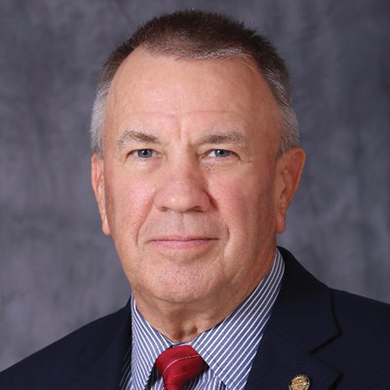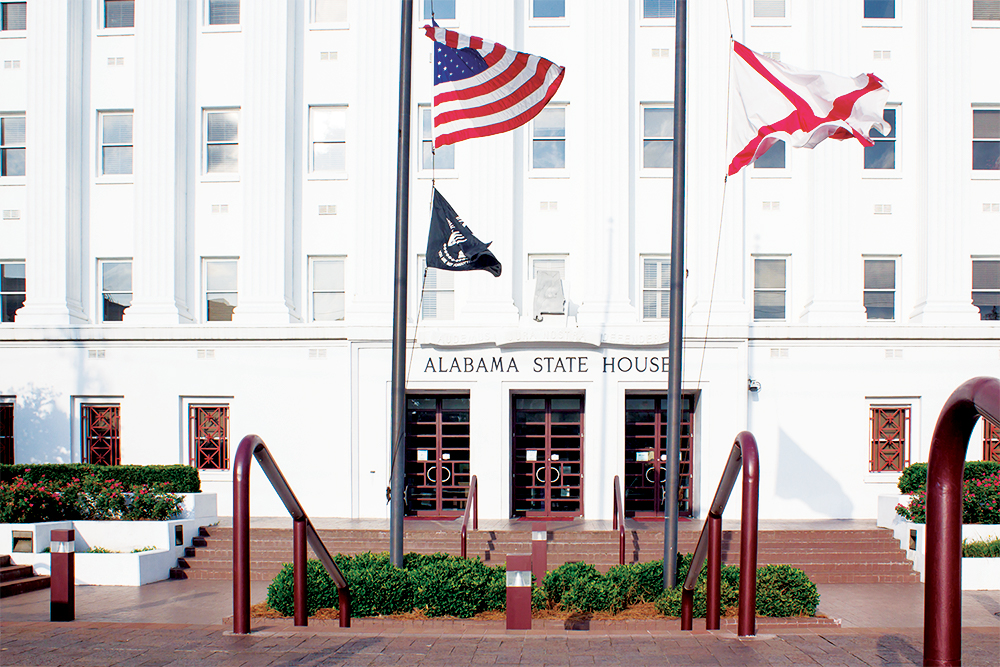By Allison Law
Alabama’s 2019 legislative session was, by most accounts, tough. Controversial. Contentious. And for that session, nearly a third of the state’s legislators were new.

Now that they have a year’s worth of experience, House Speaker Mac McCutcheon thinks these new legislators will be able to build on relationships and work more closely with their colleagues.
But he stops short of saying the 2020 session will be any easier.
“Some of the things that we’re going to tackle are still just as difficult,” he said in an interview in early January. Thorny issues with Corrections, budgets and education will loom large.
“I really felt for those 25 new members in the House (last year),” McCutcheon says. “Those men and women were put through a tremendous amount of stress.” But those new legislators gained a lot of experience and have a better feel for the districts and constituents they represent, which may translate into a smoother session.
“It will run smoother from the standpoint of accomplishing things.”
Among the larger issues McCutcheon expects for the upcoming session, which begins Feb. 4:
• Education. McCutcheon says the legislators will be looking at student/teacher ratios, the governance process of the education system, mental health counseling for schools and school safety. “We’re trying to recognize and help students with mental health problems, so that we create a safer environment for all our school systems.”
• Prison reforms. “We’ve got a correctional system that’s got to be fixed.” Overcrowding, violence and homicides, understaffing and lack of mental health care have plagued the Alabama Department of Corrections, and the Department of Justice has put the state on notice. McCutcheon says the state needs to deal with the brick-and-mortar facilities, recidivism and increasing supervision for probation and parole. “Corrections officers, we’re going to increase employment, and look at the treatment of inmates, which is going to take additional space as well as additional people.”
• Lottery. A lottery measure passed the Senate in 2019, which would have allowed voters to decide on the issue, but it failed a procedural vote in the House. “We’ve still got all these issues out there that have to be paid for. So what direction do we go in for revenue?”
For McCutcheon, a lottery is only one part of a three-part gaming issue: The second is the federally-recognized Poarch Creek Indian tribe, which operates three casinos in Alabama. Last fall, the tribe unveiled a plan to expand gambling in exchange for gaming exclusivity. Third are the local issues – counties that have previously passed legislation to enable gaming establishments, such as dog track operators VictoryLand and GreeneTrack.

“I’ve shared my feelings with the governor. Let’s not leave one out and try to push another one through when it comes to these three issues. Let’s bring them all to the table and let’s find a solution.”
• Rural healthcare. “I feel like there needs to be an overall assessment of the rural hospitals and their role in the areas that they’re in. Administration costs, bed space, and their function within a rural community needs to be assessed and evaluated.” But McCutcheon clarified that he was not advocating the closing of smaller hospitals.
As a hypothetical example, he said a 30-bed facility may only serve six or seven patients on average each month. “Yet the federal government that’s subsidizing the care through Medicaid, they’re expecting them to staff that hospital for 30 beds. Well, that’s not good economics, and a lot of the communities can’t afford that.” He also says the state needs to move away from talking about Medicaid expansion.
A system of clinics might be able to provide primary care in rural areas. And using nurse practitioners, instead of doctors, as well as more reliance on telehealth, all need to be on the table, he says.
• Census. While not a legislative issue, McCutcheon is concerned about the Census, which kicks off in March. “We need to get the message out there that this is so important to the state,” he says, not only from the view of losing a congressional seat, but the federal dollars that are allocated based on population. “We were at about 71 percent, maybe, reporting in the last Census. If we could just move up to about 76, 77 percent, (that) could possibly save that congressional seat.”





